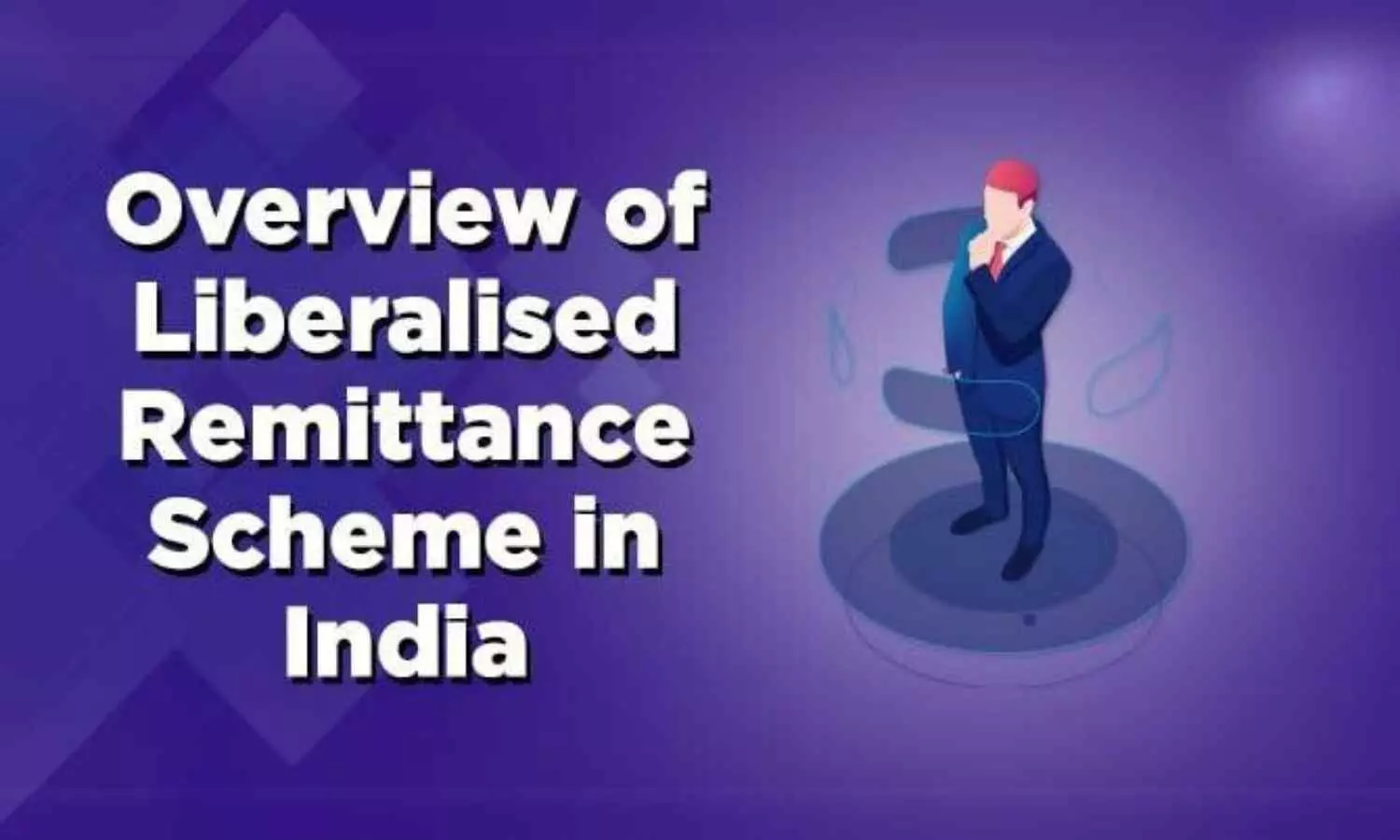An Overview of the Liberalised Remittance Scheme
Under the Foreign Exchange Management Act of 1999, transferring money abroad was a time-consuming and restricted process. However, in 2004, with the support of the RBI's new initiative known as the liberalised remittance scheme, individuals got the opportunity to conduct overseas transactions efficiently.
image for illustrative purpose

According to the Ministry of External Affairs, approximately 1.5 million Indian students went to study abroad in 2023. In fact, as per the report, most of the students who went to pursue education abroad aim to gain experience in terms of work, either full-time or part-time. But then reality sets in, and everyone realises they need financial support from friends and family to reside there. This is where the RBI's liberalised remittance scheme (LRS), which makes smooth international transactions possible, came into play.
What is LRS? LRS is a foreign exchange policy initiative introduced by the Reserve Bank of India in 2004. Before the LRS came into existence, sending money abroad was a cumbersome process with strict limitations under the Foreign Exchange Management Act of 1999. In addition, Indian residents living in foreign countries needed specific approvals for every transaction, including education and medical treatment. This is where, to simplify the whole process and attract more non-resident Indians (NRIs) to invest in India, the scheme gained huge popularity.
Benefits of using the LRS
i)Diversification and investment: The LRS removes the requirement for several permissions for various transactions, allowing individuals to diversify their investment portfolio.
ii)Flexibility and freedom: LRS benefits individuals by remitting money for a wide range of purposes, including education, medical treatment, travel and even setting up a business overseas (under specific conditions).
iii)Transparency: The RBI provides clear guidelines on the LRS, making it easier for people to understand the eligibility criteria and permissible transactions.
iv)Gifts and donations: The scheme allows residents to donate money to charitable firms and gifts to their families outside India.
LRS guidelines
While the initiative offers myriad advantages, there are some LSR rules that everyone needs to keep in mind:
i)LRS eligibility: The LRS is available for resident individuals, including students and minors. And NRIs cannot use it.
ii)Documentation: While the process has been simplified, individuals may still be required to submit certain basic papers, depending on the purpose of their remittance. Check with the licensed dealer, as the criteria require an Indian bank account, a valid PAN, and a passport.
iii)LRS limit: Under the LRS, Indian residents can currently remit up to $250,000 per financial year.
iv)Taxes: Depending on the amount and purpose of the remittance, you can claim a reimbursement for deducted TCS when completing your ITR using Form 26AS.
v)Record-keeping: Maintain proper records of your transactions for future reference.
Ever since LRS for individuals came into being, the scheme has paved the way for economic growth, international trade, and foreign investment, among others. However, before embarking on a new journey away from family and friends, the individual needs to know what the liberalised remittance scheme is all about, its importance and guidelines for freewheeling life.
Frequently Asked Questions (FAQs) about the LRS
Q: What is LRS and who is eligible for it?
The liberalised remittance scheme is a foreign exchange policy initiative introduced by the RBI in 2004 to facilitate hassle-free foreign exchange. Only Indian residents, apart from corporates, partnership firms, HUFs, etc., are eligible for LRS.
Q: Can I send money abroad for anything under the LRS?
No, the LRS has a defined list of permissible transactions. You can find a comprehensive list on the RBI website.
Q: Can I send money abroad to anyone under the LRS?
No, you can only send money to your close relatives, including your parents, children, and spouse, or for specific purposes like education or medical treatment.
Q: What happens if I exceed the LRS limit?
You can attract penalties if you exceed the LRS limit, which is a violation of the Foreign Exchange Management Act (FEMA).
Q: Can I use the LRS to invest in foreign stocks or real estate?
To tell you the truth, the LRS allows you to invest in foreign stocks under limited and specific conditions. However, direct investment in real estate abroad is not allowed under the LRS.

